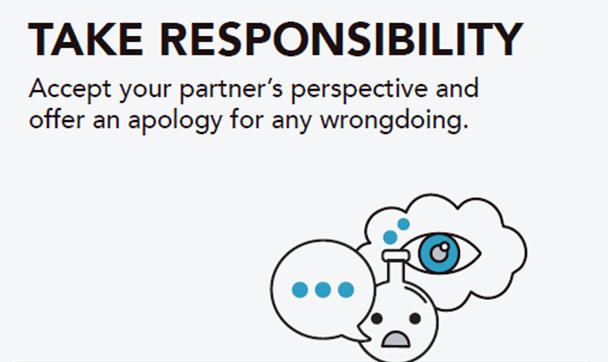Now, it is time to put these newly learned skills together. Not only was each section reviewed before a four-horsemen antidote, but it was also a foundational tool for active listening.
Active listening goes beyond just hearing the words your partner is saying; it is an attempt to understand them and their perspective genuinely. We all want to be heard and understood by those we care about. When we are dismissive or not actively attuned to others when they are trying to communicate with us, we can miss the entire point of the conversation; often, the point of their conversation was to let us know how they feel. Holding space and validating those experiences/emotions is essential. Validating your partner’s experience/emotions does not mean you agree wholeheartedly with what they say happened. But when you put your defense to the side and really listen to what they are saying about how something made them feel, you have the ability to show empathy (see things from their perspective).
For example, let’s say your partner states that they felt you were ignoring them when you came home from work, making them feel unloved. Your instant, reactive thought might be, “Me not saying anything immediately when I come in the door isn’t me ignoring you, and it doesn’t mean I don’t love you!” This thought could prime you to jump into defensiveness. But if you listen in, something clearly occurred during that time that made them feel unloved. The focus should be on the unloved feelings and the behavior that made them feel unloved. The assumption is you don’t want to make your partner feel unloved, so acknowledging that feeling, what made them feel that way, and validating that experience can go a long way.
Active listening is for more than just conflict. It can be used all the time when engaging with our partners. Active listening can help us and our partners feel understood and emotionally safe within the relationship. If your partner wants to vent to you, it would be an excellent time to practice using these active listening steps discussed next.


